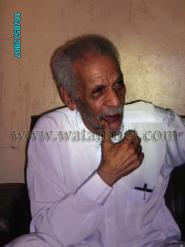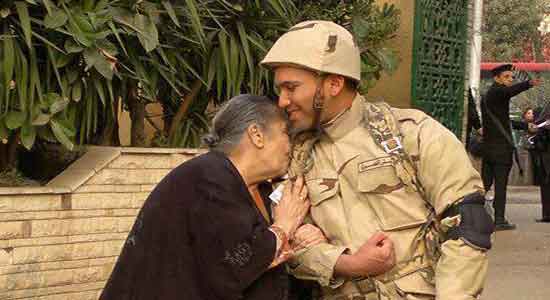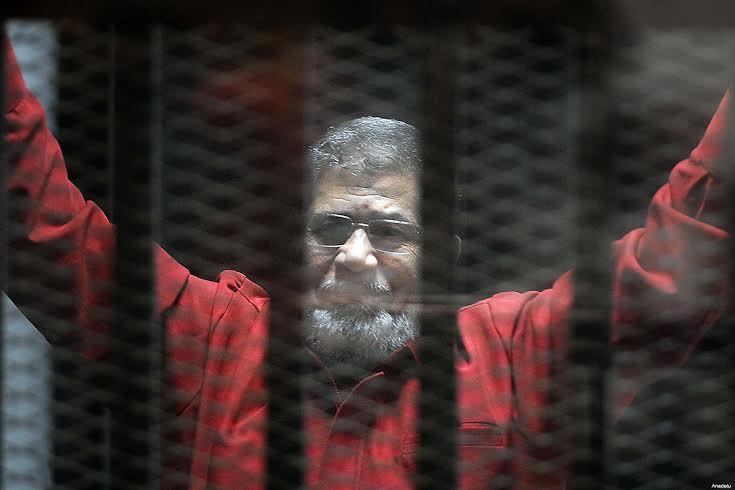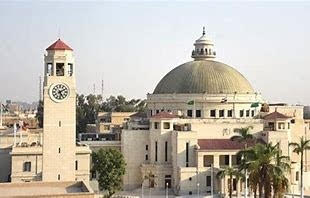On 1 July 2007, Watani International printed an interview with the vernacular poet Ahmed Fouad Negm who passed away last Tuesday. Negm’s poetry captured the raw Egyptian wisdom, wit, sarcasm, and bite. It was no surprise then that his works, especially when sung to the simple unalloyed Egyptian melodies by the blind singer composer Sheikh Imam, found an echo in the psyches of Egyptians across the board.
To commemorate al-Fajoumi, as Negm was fondly called, Watani reprints the interview:
His flagrant honesty is sometimes too much to take, and his works, so vividly etched on the mind, reflect the essence of the Egyptian people. His features carry all the traces of life’s burdens, and his views hint at a depth of history. This is Ahmed Fouad Negm, the vernacular poet who not merely uses colloquial Egyptian Arabic, but uses it in its most spontaneous form, expression, and dialect. To read or hear Negm’s poetry is to live on the Egyptian street and hear its people talk, joke, laugh, cry in pain, complain, philosophise, or reminisce. The choice of topic mirrors the prime interest on the street, the emotion is raw, and the expression down-to-earth, the diction commonplace, and the entire encounter a piece of genuine Egyptian everyday life.
Watani met Ahmed Fouad Negm, the poet whose reputation for defying decorum and ‘cultivated’ attitudes has earned him a reputation as a rebel.
Why do you frequently say that Copts are the owners and masters of the nation?
History says so. Muslims invaded Egypt and were helped by the Copts. But after they took hold of Egypt’s affairs, they became tyrannical. I want to say that the prophet Muhammad loved Egypt and the Copts in Egypt.
How do you view the sectarian conflicts that arise every so often?
They are engineered by enemies of the Egyptian people. And it was [President Anwar] Sadat who instigated them: I remember that one day when I was imprisoned in the Citadel they told us a fact-finding committee was inspecting prisons. When they entered my cell, I asked the deputy to carry a message to President Sadat. My words were: “The kids that you armed with staffs and canes to strike the young men and women in Egyptian universities, will tomorrow strike you with weapons.” I remember, when I was in prison, that I was astounded when a policeman kept beating a particular queue of prisoners. When I asked him why, he replied that it was because they were “four feathers” [meaning the four arms of the cross]. It was the first time I had heard this expression, and he explained that it meant ‘Christians’. “But they are Egyptians, not Moguls,” I said.
But some say that it was Gamal Abdel-Nasser who sowed the seeds of sectarian violence?
No. Nasser loved Pope Kyrillos because the latter helped cement relationships between him and Emperor Haile Selassi. Egypt’s water supply was in jeopardy, but the Pope told the Ethiopian emperor that Nasser was a pastor to Christians in Egypt. There was no sectarian conflict in the times of Nasser because he was in control. I remember a joke that ridiculed Nasser at the time. The joke was that Nasser was the foremost at unifying religions, because he turned both Muslims and Christians into infidels.
And now?
Who on earth is able to attack three churches in Alexandria [an incident which occurred in April 2006] at one time and then be labelled ‘mentally disturbed’? Of course this was a previously arranged operation, but by whom? Perhaps by Zionists, because I doubt an Egyptian would do such a thing.
Do the Zionists also print out the fliers that incite hatred against Christians and call upon Muslims to rise up against Copts in jihad?
There is a conspiracy targeted against the Egyptian people. I don’t believe that those who could commit such acts are really Egyptians. No one who takes part in such a farce can escape the revenge of history. We have to return to the motto of the 1919 nationalist Revolution, “Religion is for God and the nation for all”. I remember a Christian once defamed Prophet Muhammad, and the normal reaction in our day would be to kill him. But instead, the renowned vernacular poet Beiram al-Tonsi wrote a beautiful poem about the Qur’an, Christ and the Holy Virgin.
Why haven’t the recent sectarian events inspired you with any poem?
I haven’t written because I am convinced that such violence could never come out of Egyptians, and therefore I am unable to imagine it or express it in words.
Are you afraid for future relations between Muslims and Copts?
No, because I wake up every morning and greet my neighbour Umm-Michael—a Copt, and my daughter Zeinab shares her meals with Abanoub—also a Copt. I know Copts very well, and they were the first to discover my talent as a poet.
How did this happen?
In 1959 I was thrown in jail because I was accused of forging official papers. There were then libraries in prison with many rare books, and that was because of the leftists, who were very much a highly cultured lot and who wielded a lot of power then. I read all the Russian literature. The head police commissioner of the prison was a Copt by the name of Samir Qelada Ghattas and he was the first person to whom I dedicated a poem because he was opposed to treating prisoners roughly. He even punished the soldiers if he saw them carrying sticks. I began writing poetry then. The principal of the prison, Ibrahim Ezzat Adib, used to organise literary seminars in prison every Wednesday and we used to act out some plays. At the time, the Supreme Council for Literature and Arts organised a competition and Mr Ghattas asked me to take part. I wrote some poems which he typed up himself and sent at his own expense. The day before I was released, he told me that my collection Poems from Life and Prison had won. He gave me EGP15 and told me how to contact writer Soheir al-Qalamawi, who wrote a preface for my collection.
Why were you detained more than once?
I used to write critical poetry that was composed and sung by the famous Sheikh Imam. I was put in prison in the presidency of Nasser and he said I would not leave prison as long as he was alive, and that is exactly what happened. I was released after he died, but no sooner. I was detained several times under Sadat’s presidency.
You wrote a poem entitled Arees ad-Dawla (State Groom) criticising the idea of making Gamal Mubarak an heir to the presidency, whereas many believe him to be better than the Muslim Brotherhood.
The Muslim Brothers are part of the system. By the way I was imprisoned with them and I know them by heart. They are no more than a group of gangsters, and if they rule they won’t build up anything; they would rob what is left of the country. I am, however, against bequeathing presidency, and it is my right to object, and it is nobody’s right to threaten us with this gang.
What do you think of rumours that artists and writers use drugs?
Maybe it could lead to a state of transparency?!
Before leaving, our photographer had a question to ask: How come, though Negm faced serious repression under Nasser, he still defends the former president? “You don’t understand,” Negm said. “Nasser was ‘us’. He was an Egyptian to the core. His values, hopes and aspirations, were those of a typical Egyptian; he worked hard—even if mistakenly—to achieve them. His failings were also those of the typical Egyptian;” they brought about his downfall and are the root of many problems Egypt is now facing.
WATANI International
4 December 2013
Comments
comments
.jpg)
.jpg)
.jpg)
.jpg)
















